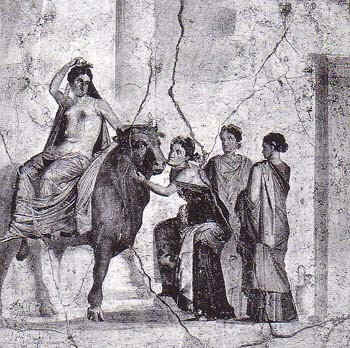 |
|
| THE HANDSTAND | FEBRUARY 2003 |
CONVENTION NEWSLETTER From a Report on the
Convention Plenary session of the European Union on 20-21
January 2003. Debate included many critical voicesThe
German-French proposal was broadly discussed, and
critical voices were raised as to several aspects of the
proposal. The Convention remained divided on the question whether or not to the practice of the 6 months rotating presidency system of the European Council should be abolished. But to keep the present system of rotating presidencies was supported by a large number of delegates to the Convention. Mr Peterle, Slovenian Gov. also endorsed maintaining rotating presidencies, arguing that citizens like to see the EU as being led by their own home country every now and then and in order to keep equality between Member States.Mr Bösch, MNP, Austria, argued that the Council would always have some instability due to changing ministers, so stability in the EU's work could be achieved by a Commission multi-annual presidency and keep the rotating presidencies. The debate was focused on the election procedure for the respective presidents of the Council,and the Commission. The German-French proposed changes of the Institution's Presidencies was broadly criticised, but discussed and analysed in detail. The German-French proposal released last week and presented by Mr Fisher (German Gov.), and Mr de Villepin,( French Gov.) can briefly be described as follows: A permanent President of the Council should chair meetings and represent the Council externally. A so-called minister of foreign affairs, with his own secretariat and diplomatic corps, would take part in Commissions meeting and be mandated from the Council. Moreover, the President of the Commission should have his powers strengthened. The proposal is seeking to create more legitimacy for the Commission, a more stable Council and more power to European Parliament as well as a strong EU-voice in global affairs. , Mr Amato (Vice- President) was against the proposal. According to him, the proposal would only worsen the current situation, as there is still no clear distinction between the executive and legislative tasks of the Council: "Let's be bold enough to set up a legislative affairs council", he said. Several speakers mentioned the European Court of Justice as an important institution. Mr Lord Macleelan UK MNP suggested setting up a special/technical group to look at the Court in an enlarged Europe. Mr Bonde MEP criticised the whole discussion as focussed on different Presidents: "it is an elite top approach instead of concentrating on democracy from a bottom up approach" Bonde stated.Mr Duff MEP expressed his fear that the permanent Council president would develop into a super president, the most powerful in Europe, without any parliamentary control. Mr Brok, MEP also emphasised the importance of equal status between small and big states when reviewing the Council´s structure. According to Ms Maej-Weggen, MEP, who took record of the two days discussion, there were 12 speakers endorsing the French-German proposal, 15 speakers being sceptical and 46 speakers against it. Commission Presidium Many speakers supported the election
of the Commission President by the European Parliament (e.g.
Mr. Teufel German MNP.) Mr Christoffersen Gov. DK suggested that the President of the Commission should be elected by representatives of a college of national parliament and of the European Parliament. (Also advocated by Mr. Gormley MNP, Ireland. Mr Kristensen, MNP, DK, Mr Floch FR, MNP) Moreover, Mr. Gormley MNP, Ireland, considers democracy as being more important as efficiency in the institutional approach. He also claimed to keep the principle: One commissioner for each Member State. Mr Vitorino, Commissioner, was somewhat more diplomatic in his scepticism when stating "I hope we can find the right balance between the Commission and the Council and the control by the parliament". Neither the Commission nor the Council are the government of the EU. The Convention has to be innovative in finding a solution as to the sharing of executive power, bearing in mind that most of the executive implementation are carried out on national or local level. Several speakers called for referendums on the future constitutional treaty, now that French, Denmark, Portugal, the Netherlands and Ireland have stated that they will hold referendum. It was suggested that even countries where a referendum would only have consultative status, like Germany, should involve citizens through referenda. Preferably, all referenda should be held on the same day: Mr. Villepin Fr. Gov., Mr Bonde, MEP, Mr Heathcoat-Amory, MNP, UK, Abitbol, MEP, Mr Gormley MNP Ireland A letter to the Presidium, signed my 50 members of the Convention, complained about national parliamentarians not having influence in the Convention Debate.Some members also complained about the Convention being turned into an intergovernmental conference, since many ministers of foreign affairs were participating. Ms Stuart MNP, UK, underlined the importance of National Parliaments in the EU and urged the Constitution text to include a 'red' light in the 'early warning system' of subsidiarity, so that the parliaments could block a Commission proposal.Moreover, every national parliament should have two votes, allowing parliaments with two chambers to allocate one vote to each. Ms Stuart has drafted a joint contribution on the role of national parliaments in EU affairs, as many National Parliamentarians felt that their voice was not being heard in the Convention Debate. 50 members of the Convention signed the letter. The French-German suggestion of a minister of foreign affairs was not rebutted by any speaker. This was not surprising since the Plenary session on 20th December a consensus on a double-hatted external affairs representative was reached, although, like always, the 'devil still lies in the details'. Therefore this still has to be decided. Only Mr Seppänen MEP, joining the other critics of the German-French proposal, feared the proposal as leading to the transformation of the EU into a military power. . New
voting procedures in ECB gives more power to Big States |
|
